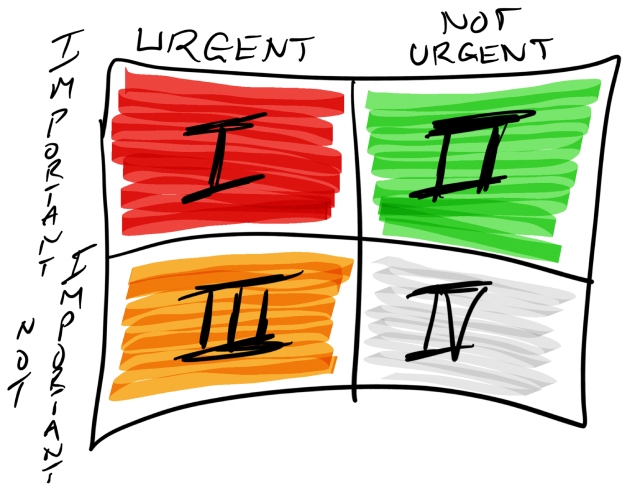
In This Episode…
Over the last couple of weeks, I have been exploring the concept of “The Main Thing’. In this episode I pull together the strands of previous episodes to give a summary of my findings. Today I talk about:
- A simple way of defining the characteristics of a “Main thing”.
- 4 reasons why having a Main Thing is your Main Thing.
- The hidden “Shadow Selection” criteria we all have for choosing our Main Thing.
- The fundamental question we are asking ourselves when we choose the Main Thing.
- How the relationship between your goals and your planning horizon affects your choice of the Main Thing.
- Three different work environments that result in very different types of Main Thing.
- Why choosing your Main Thing based on looming deadlines is a strategy fraught with challenges.
- Other factors to take into account in choosing your Main Thing.
Episode Show Notes…
00:09 – Introduction – why I am having my final say (for now) on the concept of “The Main Thing”.
00:58 – “If you start something, then do it until it is done”. This statement is one way you can define what a main thing is – something that needs to be taken to its conclusion as quick as possible.
01:33 – Here are four reasons why I think having a carefully selected Main Thing is important:
- 01:39 – One of my favourite quotes is “in the absence of direction, everything is relevant”. Having a Main Thing clearly identified makes deciding what to do, and what information to process, much easier.
- 02:17 – Our brains naturally crave novelty, are easily distracted and readily put things off. Having a defined Main Thing helps direct and maintain focus.
- 02:49 – Value will only be created by doing important things that are likely to be difficult and challenging. Value creation will arise out of focusing on your Main Thing
- 03:16 – Having a Main Thing will be an integrity driver – assuming that the Right Thing (however hard or difficult), is automatically selected as the Main Thing.
03:58 – My shadow selection criteria consists of the following:
- Your beliefs.
- Your values.
- Your attitude.
- Your identity.
04:51 – A key question to answer when choosing your main thing is this:
What’s the most important thing for you to do right now?
05:12 – This brings to mind Steven Covey’s Time Management Matrix I mentioned in a previous episode.

06:11 – One way to answer the question “What’s the most important thing for you to do right now?” is to get very clear on your long term, medium term and short term goals.
06:50 – The relationship of your goals with your these time frames is important and include:
- 07:08 – Your goals are stand alone projects that are sequenced by time and the order does not really matter. For example a property developer building a housing estate will build lots of houses. The order of building those houses might just be down to a matter of choice depending on which phase comes first.
- 07:45 – Your short term and medium term goals are required stepping stones to your long term goal. This was the Goal Setting To The Now process in Gary Keller’s book “The One Thing”.
- 08:07 – The relationship could be a combination of the above two options.
08:51 – The bottom line is you have some way of identifying your goals and then sequencing them to find the next thing for you to do.
09:21 – Another way of answering the question “What’s the most important thing for you to do right now?” is to focus on the nature of your role in your work environment. I believe there are three potential work environments.
09:36 – The first is one that is proactive, takes a longer term view and is about generating new things. This is about Getting Things Going. Here are a couple of questions you might ask to help identify your main thing:
- 09:54 – What are the three main/important projects you are working on right now?
- 10:31 – If you stopped working on each of those projects, which would have the most detrimental impact on your work?
10:52 – The next work environment is about maintenance and processes. It is about Keeping Things Moving. Here are a couple of questions you might ask to help identify the main thing here:
- 11:05 – What are the 3 key processes most important to your work?
- 11:20 – If all of those processes were stopped, which would have the most detrimental impact on your work?
11:37 – The third work environment is one that is more reactive, has a short term focus and is much more dynamic. This is about Stopping Things From Breaking. Here are a couple of questions you could ask yourself:
- 11:48 – What are the 3 most impactful (and likely) scenarios you’d have to react to so that things wouldn’t “break”?
- 12:04 – If you couldn’t react to these scenarios at all, which would have the most detrimental impact on your work?
12:33 – Looming deadlines are another way you can find the answer to the question “What’s the most important thing for you to do right now?” Here’s a question you could ask yourself:
- What looming deadline is important enough for it to become the Main Thing?
13:00 – My health warning about using deadlines to choose your Main Thing:
- Our brain is very short sighted (in terms of time) and relishes the reward of the now rather than the delay of things to come in the future. Deadlines pander to this.
- People generally firefight because they leave things until the last minute (because they’ve not taken earlier action when they could have).
- Your planning horizon will determine how reactive you will be.
14:14 – There are other factors that might inform your choice of the Main Thing:
- Political
- Seasonal